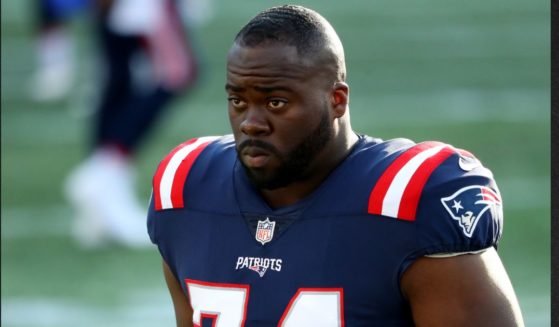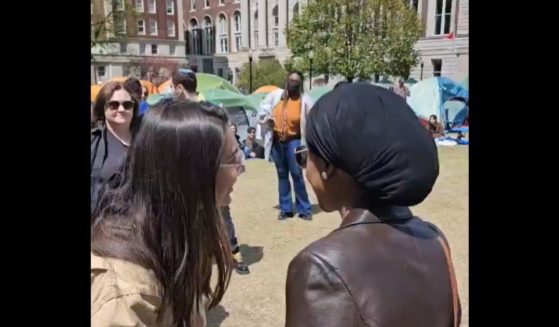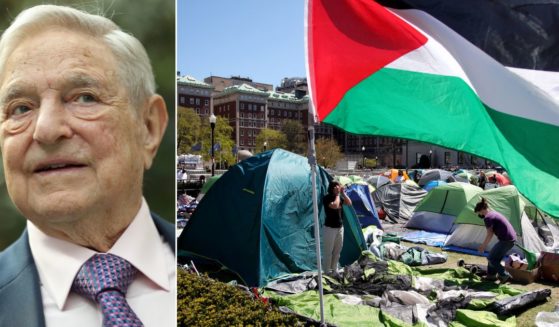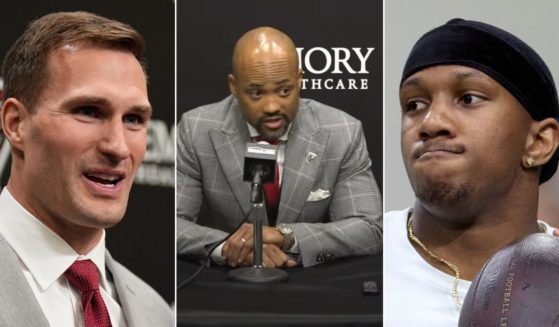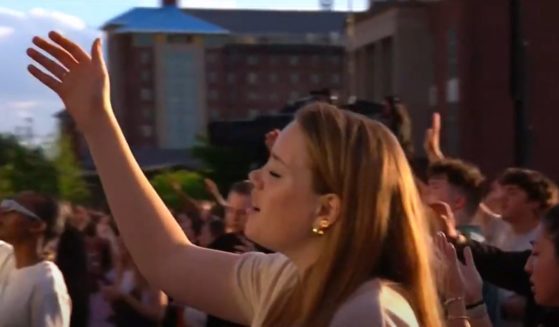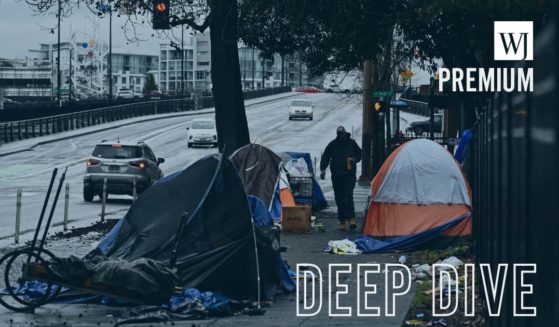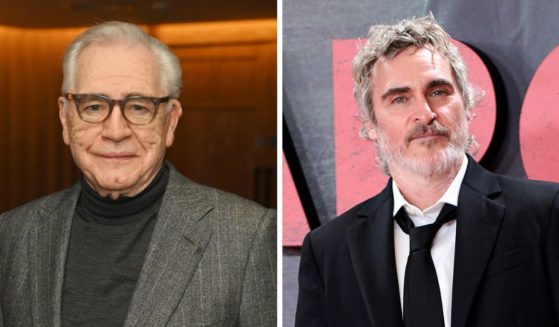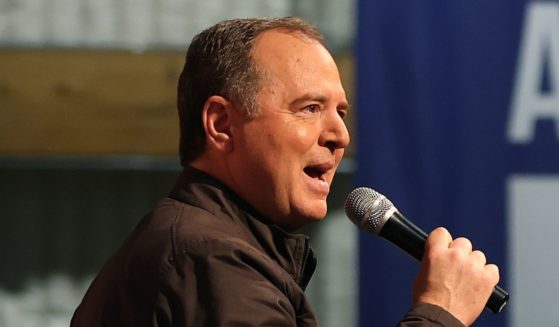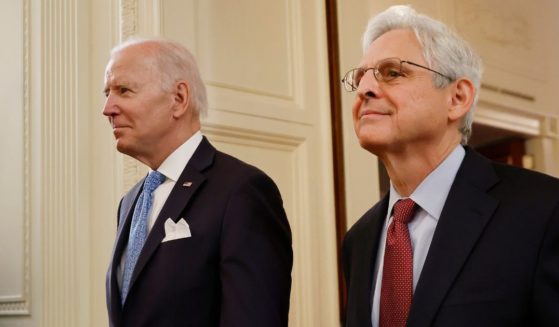Biden Loses Support from Nat'l Police Groups as Anti-Police Sentiment Grows
Could Joe Biden be losing support from national police groups? A report from Politico says the presumptive Democratic Party presidential nominee could face an uphill battle with a group that in the past had his back.
The Thursday article from Marc Caputo and Natasha Korecki lays out why Biden always has been a favorite of law enforcement: the former vice president has “long prided himself on being a union-friendly Democrat with a good relationship with rank-and-file cops.”
This apparently hadn’t changed much despite the Democratic Party’s move to the left on issues of law enforcement.
However, the fissures are beginning to show to a greater extent over the death of George Floyd — particularly given that Biden appears to now be using police as a rhetorical punching bag.
Biden spoke in Philadelphia on Tuesday in his first major public address that didn’t involve a remote segment from his Wilmington, Delaware, basement. The speech was essentially a soft relaunch of his campaign; while Biden-watchers could glean little new out of the address, there was a more jagged edge to his attacks, particularly as it pertained to policing.
According to The New York Times, Biden told an audience at City Hall that the United States needed “leadership that can recognize pain and deep grief of communities that have had a knee on their neck for a long time” — a knee, it didn’t take much guessing, that he was implying was being provided in concert by law enforcement and President Donald Trump.
While Biden decried violence and looting, you could probably have guessed what was to come shortly thereafter.
“Nor is it acceptable for our police, sworn to protect and serve all people, to escalate tension, resort to excessive violence,” he said.
Biden has also called for a national police oversight commission to be established in his first 100 days in office, something that won’t be greeted with unmixed delight down at the precinct.
Bill Johnson, executive director of the National Association of Police Organizations — which acts as an umbrella group for national Police Benevolent Association chapters across the nation — didn’t have a positive assessment of where Biden was at the moment.
“Clearly, he’s made a lot of changes the way candidates do during the primary process, but he kept moving left and fell off the deep end,” Johnson told Politico.
He also took an unveiled jab at Biden’s senescence.
“For Joe Biden, police are shaking their heads because he used to be a stand-up guy who backed law enforcement,” Johnson said. “But it seems in his old age, for whatever reason, he’s writing a sad final chapter when it comes to supporting law enforcement.”
The fact that this is coming from the National Association of Police Organizations is telling. Police tend to be a right-of-center group for reasons that don’t necessarily need explaining. However, as Caputo and Korecki report, NAPO endorsed the Obama-Biden ticket in 2008 and 2012 due to Biden’s presence on it.
There have been other fissures before the primary process and Biden’s shift left, obviously. The rise of anti-police movements such as Black Lives Matter — and the Democrats’ embrace of those movements — have been difficult for police unions to swallow. At the same time, the police officer constituency has moved right.
“There are two evolutions in two directions. On law-and-order issues, Biden was right of center: the ’94 crime bill, the Brady law and enhanced penalties. But as time has gone by, his positions have moderated, moderated, moderated to where we are today, where he would not be considered a law-and-order guy in the sense that law enforcement sees it,” said Jim Pasco, both the executive director of the Fraternal Order of Police and the former in-house lobbyist for the Bureau of Alcohol, Tobacco, Firearms and Explosives, where he worked with Biden on the crime bill.
That crime bill has become one of Biden’s biggest weaknesses among progressives, who view the tougher penalties it imposed as having caused mass incarceration among minority communities. The bill isn’t something that he’s disavowed, but it’s pretty far down on his resumé and in small font with a lot of qualifiers.
And then there’s the matter of the police electorate, which — like most of America — is becoming more polarized.
“Also, as time has gone by, the law enforcement community — especially the rank and file — has become far more conservative,” Pasco said. “Today, the FOP and other labor groups are far less open to addressing gun control issues, things that traditionally they supported and that Biden worked very closely and successfully with them on.”
As Caputo and Korecki point out, these are issues that are going to help him massively with younger progressive voters. The question they leave unaddressed is how that calculus will work in the general election.
Counting on progressive voters to turn out didn’t work in the Democratic primaries, where early victories for Vermont Sen. Bernie Sanders in caucus states quickly became as useless as Zimbabwean currency when it became clear getting progressive voters to the ballot box was a Sisyphean task.
Other progressives fared worse; Massachusetts Sen. Elizabeth Warren finished third in her home state.
If these progressive voters do come out, it’s already clear who they’ll be casting a ballot for, assuming Marianne Williamson doesn’t harness some love-energy and mount a third-party spoiler run.
Public sector union voters do turn out, however, and that’s a problem when they’re not voting for Democrats like they usually do.
Law enforcement officers qualify as blue-collar voters, the demographic that tipped the 2016 election to Trump, particularly in the Midwest.
Biden wasn’t supposed to repeat that mistake; he was a working-class Catholic with a strong Pennsylvania organization. Pushing him further left does him no favors in trying to recapture those flyover states that cost the Democrats big four years ago.
And then there’s the law-and-order factor.
The Trump campaign has been quick to condemn the death of George Floyd, but also the rioting that’s ensued and the politicians that have elided over it, if not excused it.
We’ve seen the physical damage the riots and looting have caused, but the economic damage is yet to be assessed.
Given the dire economic conditions brought about by the novel coronavirus, any compounding of the problem by the riots will fall squarely back on those who didn’t think stopping them was that important.
If the law enforcement community turns on Biden en masse, the law-and-order issue is going to loom a lot larger than it looks now.
On this and so many other issues, Biden has been able to walk a tightrope between appealing to the working-class voters Hillary Clinton lost and to the progressive youth vote the Democrats view as the future.
What we saw in Philadelphia — and what we hear coming out of the National Association of Police Organizations — could be an indication that Flying Wallenda act is about to end in a fall.
Truth and Accuracy
We are committed to truth and accuracy in all of our journalism. Read our editorial standards.

